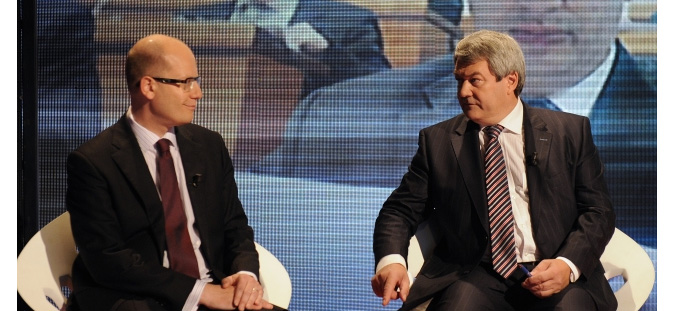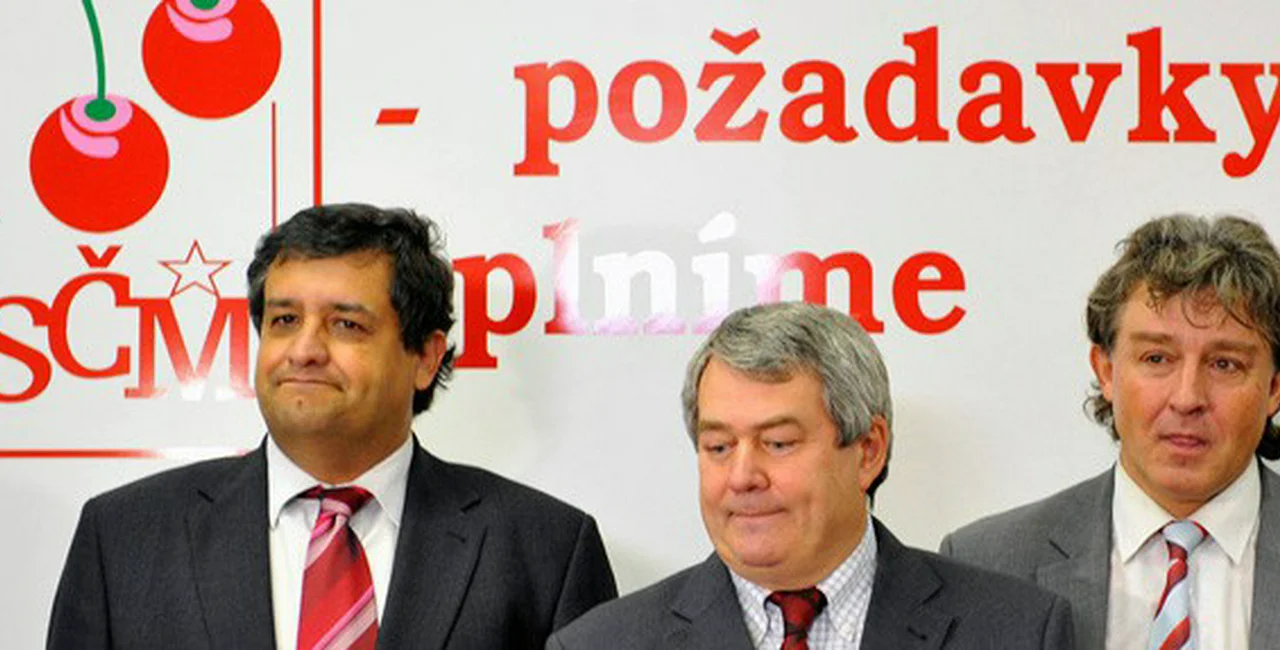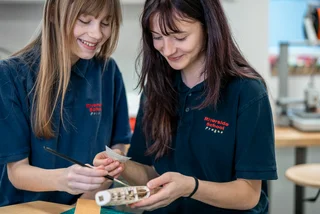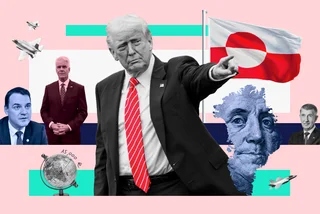Considered by some a blight on the Czech Republic’s democratic credentials, the Communist Party of Bohemia and Moravia (Komunistická strana Čech a Moravy or KSČM) remains a disproportionate force in Czech Politics. Though treated as pariahs, their support is still sought in key issues.
Block Party
In the aftermath of Velvet Revolution, a law was passed to delegitimize the former regime. But communism as a whole was left untouched. Havel thought democratic forces alone would dissolve communist support.
PARTNER ARTICLE
His predication proved wrong. While the communists have not held power at a national level, since 1992 they have averaged about 12% of the vote. Their peak popularity was in 2002, with about 18%. Support has declined a little since, but after the Social Democrats and ODS, they have had a constant presence in the lower house.
Efforts to outlaw them and their imagery have continued. In 2005, a petition was launched to ban the promotion of communism along with Nazism and fascism. In 2007, an amendment was suggested which would ban communist symbols. Neither strategy proved successful. These actions were taken because the communists are still perceived as a threat to democracy.
Lately, discussion on the topic suggests the political will has waned. Politicians from either side of politics have questioned the point. Former ODS Defense Minister Alexandr Vondra said the banning should have happened long ago. Recent presidential hopeful Jiří Dienstbier went further in the same article to say that there was no reason to dismantle the party.
Revolution Now (?)
KSČM was formed as a territorial branch of the former Czechoslovakian Communist Party (Komunistická strana Československa) in 1990. With split of Czechoslovakia the Czechoslovakian party ceased to exist leaving the Czech-Moravian and Slovakian parties.
The Communist Party’s pamphlet “Kdo jsme a co chceme” (Who we are and what we want) states the party’s philosophy quite clearly: “the long-term programmatic aim is socialism.” This shouldn’t come as any surprise given the name.
So what does this mean exactly? Officially they try to distance themselves from the politics and policies of the past. They still claim to be the party for the disadvantaged and say class is still a factor. Yet, at least in the literature, they say they reject class hatred and don’t promote a call to class war. They even claim to support the regulation of market economics over its abolishment. At the same time, current party head, Vojtěch Filip described Karl Marx as the greatest philosopher of the millennium. Concerning more concrete issues such as Czech EU membership and church restitution, they have been a vocal opposition.
The measures they seek to put in place include increasing the minimum wage from 8,000 CZK to 14,000 CZK a month, increasing the minimum old-age pension to 10,000 CZK and introducing a progressive tax system with 9-15% tax for people with wages under 22,000 CZK and 40% for people with wages above 83,000 CZK).
On the surface, it looks like more like Social Democracy, albeit of a more strident form. The pamphlet linked above even suggests support. So why didn’t the Communist Party change the name when it was “remaking itself”? In their own words, the reason was that they didn’t want to engage in any “cheap tricks”, nor did they want to “deceive voters”. Having said that, Jiří Svoboda, one of the former party chiefs, tried to drop the reference to communism. Hard-liners ousted him. Interestingly, their Slovakian counterparts changed their name from the Communist Party of Slovakia to the Party of Democratic Leftism. The rebranded party dissolved in 2002 following a poor election result.

Bohuslav Sobotka from ČSSD and Vojtěch Filip from KSČM
Past in the Present
Name aside, the current communist party is seen by many as a continuation of the former party because of its members. Vojtěch Filip was a member of the former party and an informer for the StB. He even expressed his condolences at Kim Jong Il’s death. His predecessor Miroslav Grebeníček was reluctant to apologize for the past regime. His father Alois Grebeníček was a former StB member, charged with torturing prisoners. Marta Semelová is a current minister of the Czech parliament who gave a speech in honor of the first Czech communist president Klement Gottwald. Figures like this make it hard for many to believe the party has reformed.
The rank and file also gives the impression that the party is stuck in the past. A couple of news sources (here and here) place the membership at around 57,000, still making it the largest political party by membership. However, the average age of members is over 70. Not only does this account for the party’s image, it could mean its end as more members pass away.
The Communist Union of Youth (Komunistický svaz mládeže) remains small by comparison. There are only about 1500 members.
Unlikely Kingmakers
The relative size of the communist party’s membership base is an oft given explanation for their continued presence in the politics. “They get their members out and voting,” I hear accusingly, though I think maybe the problem lies with other parties not inspiring people enough. Consequently, the communists remain in politics.
Officially, the other parties have a policy of not cooperating with the communists in as far as not forming a coalition. As mentioned before, the communists to date haven’t been invited to form a government at a national level. However, the communists were part of the government in five of 14 regions after the 2008 elections. Following last year’s regional elections, six regions had the communists as junior partners in a coalition, while the communists were the main party in the Ústecký and Karlovovarský regions.
The closeness with which the Social Democrats have worked at a regional level have raised fears of the party working with the communists at a national one. The current leader of the Social Democrats Bohuslav Sobotka said last year that prohibiting a government with the communists would be in conflict with the wishes of the party’s voters.
While the Social Democrats seem the natural ideological choice for the communists, the communists have allegedly shown support for one unlikely candidates. Václav Klaus, disciple of Thatcher, possibly came into office because Communist MPs voted for him during the first election after Havel’s last term. This likelihood is maintained by Sobotka who claims that without the votes nothing would have happened. The political scientist Jiří Pehe asserts this claim too. However, there is no firm proof. The election was secret, after all.
With the current presidential elections, the communists have thrown their support behind Zeman in the second round, though they refrained from openly supporting any candidate in the first. The question is whether the mobilization of supporters, which has been so effective in the last regional election, will make a difference.
Related articles












 Reading time: 5 minutes
Reading time: 5 minutes 

























